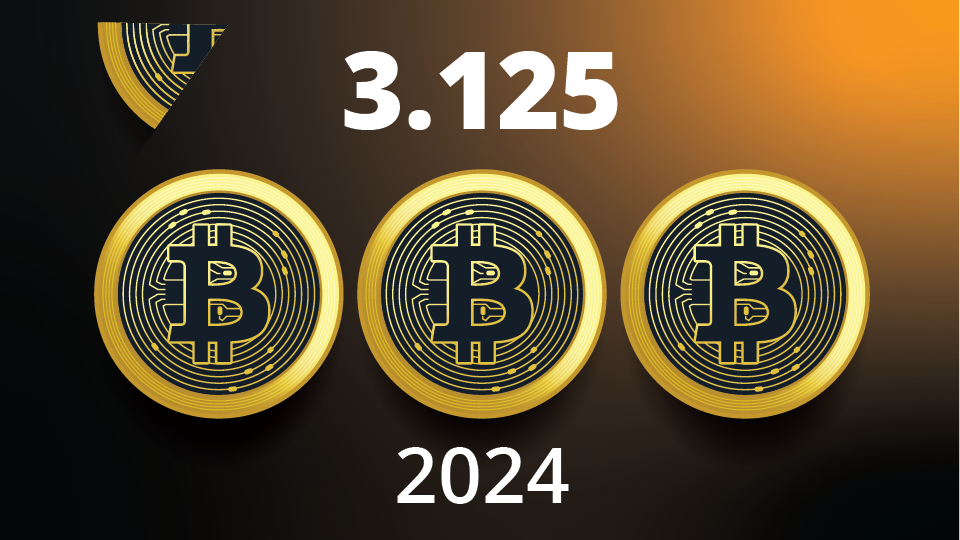Crypto Categories: Enter the Metaverse
December 15, 2021
Read Time 4 MIN
In Sorting Out the Crypto World, we identified the need for a classification system for crypto coins and introduced the categorization scheme developed by MarketVector Indexes (MVIS), a VanEck subsidiary. This crypto categorization series will offer a closer look at several of these digital assets categories: smart contract platforms, media and entertainment (metaverse), DeFi and infrastructure applications. Here we explore media and entertainment protocols.
Understanding Media & Entertainment (Metaverse) Protocols
The open metaverse is a massively scaled, interoperable network of real-time, rendered 3D virtual worlds that can be experienced synchronously and persistently by an effectively unlimited number of users, each with an individual sense of presence, and with continuity of data such as identity, history, entitlements, objects, communications and payments. We define media and entertainment protocols as those tokens that are used to reward users for content, games, gambling or social media.
The decentralized, open metaverse may re-make advertising, gaming, conferences, payments, and the internet itself. The long-term TAM (total addressable market) comprises $8T of U.S. consumer spending, increasingly moving to digital. PwC estimates the metaverse market size to reach $476B by 2025E, with a 47% CAGR 2019-2025, implying a 6% take-rate ($476B / $8,000B). For context, walled garden gaming companies like Roblox take 30-90% of developer revenues.
The metaverse will potentially disrupt:
- Gaming: Emerging play-to-earn (P2E) games could bring dramatic changes to the global game market. As NFTs (non-fungible tokens) allow gamers to have ownership of their items, metaverse gaming would enable the exchange of items across platforms, incentivizing gamers to spend more time on the platforms.
- Advertising: The advertising industry has gone through many changes, starting from traditional TV and billboards ads to data-based targeted advertising. In our view, the digital advertising market will soon face another round of dramatic changes led by the metaverse. In the metaverse, users continuously experience real-time changes that can be shared by everyone simultaneously, making the metaverse a transparent environment where advertisers can quickly understand consumer preferences, figure out their needs, and efficiently execute their ad budget. Early adopters of the trend have already actively begun to leverage the metaverse.
- Payments and Lending: E-commerce platforms will leverage the Metaverse to build virtual stores that incorporate VR/AR and may further enhance the consumer experience. In addition, many metaverse games platforms are developing features that will involve ecommerce. Interoperability may be augmented by decentralized exchanges facilitating peer-to-peer financial services.
Valuing Media and Entertainment Protocols
The combined market cap of the MVIS CryptoCompare Media & Entertainment Leaders Index sums to $34B as of 11/22/2021. The total number of active NFT wallets has surpassed 1M and active NFT user growth has accelerated from 5-10% m/m growth to 20%+ m/m growth since August. Transaction fees and tokenomics on many metaverse tokens are still to be determined. Thus, valuing media and entertainment protocols building on blockchain tech is generally done on a price-per-eyeball basis (with user growth tracked carefully for signs of deterioration) until more concrete tokenomics are established.
Number of Unique NFT Wallets
Source: nonfungible.com. Data as of 11/30/2021.
MVIS Digital Assets Media & Entertainment Leaders Index
| Token | What Is It? | What's Special About It? | Circulating Market Cap / ADV |
| Axie Infinity | Play-to-earn pet training game and virtual world built on Ethereum blockchain. Players can collect, breed, battle and trade in-game pets called Axies. All in-game assets are represented via fungile ERC-20 or non-fungible ERC-721 tokens and thus trade on secondary markets. | 1.2M traders have made 9.8M transactions at an average price of $352. | $8B / $100M |
| Decentraland | Decentralized, blockchain-based virtual world for users to create, experience and monetize content and applications. | Users have made 129,000 separate transactions for a total of $96M on virtual land and other items. The largest sale, $2.4M for a land plot, occurred on November 22. | $7B / $1.4B |
| Flow | Flow is a blockchain created by Dapper Labs that makes it easy for developers to build decentralized applications and businesses. Backed by multiple NBA players such as Aaron Gordon and Andre Iguodola, the protocol pioneered mainstream NFTs by winning a deal with NBA Top Shots. | 2.9M users have made 62M transactions YTD although activity peaked in April-June at 8M/month and has fallen by 50% since. Stakers currently earn 9%. | $4B / $170M |
| Chiliz | Provides sports and entertainment entities with blockchain-based tools to help them engage and monetize their audiences. Chiliz developed the Socios.com sports fan engagement platform, which is built on the Chiliz blockchain infrastructure and uses $CHZ as it's exclusive on-platform currency. | Current Chiliz fan tokens include Paris Saint-Germain, Manchester City, AS Roma, AC Milan, Inter Milan, Arsenal and Juventus. | $3B / $130M |
| Basic Attention Token (BAT) | A blockchain-based digital advertising and rewards platform powered by BAT, an ERC-20 token, and Brave, an internet browser. BAT is used as a payment token allowing advertisers, publishers, and users to spend, receive and earn BAT. | Brave browser has 42M monthly users, 8M of whom have downloaded wallets and made 3.5M on-chain transactions. YouTube, Twitter and Reddit have the most BAT users among Web2 platforms. | $1.5B / $48M |
Source: VanEck, Messari, protocol websites. Data as of 11/23/2021.
To receive more Digital Assets insights, sign up in our subscription center.
Related Topics
Related Insights
DISCLOSURES
Important Information Regarding Cryptocurrencies.
The information herein represents the opinion of the author(s), an employee of the advisor, but not necessarily those of VanEck. The cryptocurrencies discussed in this material may not be appropriate for all investors. The appropriateness of a particular investment or strategy will depend on an investor’s individual circumstances and objectives.
This material has been prepared for informational purposes only and is not an offer to buy or sell or a solicitation of any offer to buy or sell any cryptocurrencies, or to participate in any trading strategy.
Certain statements contained herein may constitute projections, forecasts and other forward looking statements, which do not reflect actual results, are valid as of the date of this communication and subject to change without notice. Information provided by third party sources are believed to be reliable and have not been independently verified for accuracy or completeness and cannot be guaranteed. VanEck does not guarantee the accuracy of third party data. References to specific securities and their issuers or sectors are for illustrative purposes only.
Cryptocurrency is a digital representation of value that functions as a medium of exchange, a unit of account, or a store of value, but it does not have legal tender status. Cryptocurrencies are sometimes exchanged for U.S. dollars or other currencies around the world, but they are not generally backed or supported by any government or central bank. Their value is completely derived by market forces of supply and demand, and they are more volatile than traditional currencies. The value of cryptocurrency may be derived from the continued willingness of market participants to exchange fiat currency for cryptocurrency, which may result in the potential for permanent and total loss of value of a particular cryptocurrency should the market for that cryptocurrency disappear. Cryptocurrencies are not covered by either FDIC or SIPC insurance. Legislative and regulatory changes or actions at the state, federal, or international level may adversely affect the use, transfer, exchange, and value of cryptocurrency.
Investing in cryptocurrencies, such as Bitcoin, comes with a number of risks, including volatile market price swings or flash crashes, market manipulation, and cybersecurity risks. In addition, cryptocurrency markets and exchanges are not regulated with the same controls or customer protections available in equity, option, futures, or foreign exchange investing. There is no assurance that a person who accepts a cryptocurrency as payment today will continue to do so in the future.
Investors should conduct extensive research into the legitimacy of each individual cryptocurrency, including its platform, before investing. The features, functions, characteristics, operation, use and other properties of the specific cryptocurrency may be complex, technical, or difficult to understand or evaluate. The cryptocurrency may be vulnerable to attacks on the security, integrity or operation, including attacks using computing power sufficient to overwhelm the normal operation of the cryptocurrency’s blockchain or other underlying technology. Some cryptocurrency transactions will be deemed to be made when recorded on a public ledger, which is not necessarily the date or time that a transaction may have been initiated.
- Investors must have the financial ability, sophistication and willingness to bear the risks of an investment and a potential total loss of their entire investment in cryptocurrency.
- An investment in cryptocurrency is not suitable or desirable for all investors.
- Cryptocurrency has limited operating history or performance.
- Fees and expenses associated with a cryptocurrency investment may be substantial.
There may be risks posed by the lack of regulation for cryptocurrencies and any future regulatory developments could affect the viability and expansion of the use of cryptocurrencies. Investors should conduct extensive research before investing in cryptocurrencies.
Information provided by VanEck is not intended to be, nor should it be construed as financial, tax or legal advice. It is not a recommendation to buy or sell an interest in cryptocurrencies.
Related Insights
December 28, 2021
December 22, 2021
December 03, 2021
Related Funds
DISCLOSURES
Important Information Regarding Cryptocurrencies.
The information herein represents the opinion of the author(s), an employee of the advisor, but not necessarily those of VanEck. The cryptocurrencies discussed in this material may not be appropriate for all investors. The appropriateness of a particular investment or strategy will depend on an investor’s individual circumstances and objectives.
This material has been prepared for informational purposes only and is not an offer to buy or sell or a solicitation of any offer to buy or sell any cryptocurrencies, or to participate in any trading strategy.
Certain statements contained herein may constitute projections, forecasts and other forward looking statements, which do not reflect actual results, are valid as of the date of this communication and subject to change without notice. Information provided by third party sources are believed to be reliable and have not been independently verified for accuracy or completeness and cannot be guaranteed. VanEck does not guarantee the accuracy of third party data. References to specific securities and their issuers or sectors are for illustrative purposes only.
Cryptocurrency is a digital representation of value that functions as a medium of exchange, a unit of account, or a store of value, but it does not have legal tender status. Cryptocurrencies are sometimes exchanged for U.S. dollars or other currencies around the world, but they are not generally backed or supported by any government or central bank. Their value is completely derived by market forces of supply and demand, and they are more volatile than traditional currencies. The value of cryptocurrency may be derived from the continued willingness of market participants to exchange fiat currency for cryptocurrency, which may result in the potential for permanent and total loss of value of a particular cryptocurrency should the market for that cryptocurrency disappear. Cryptocurrencies are not covered by either FDIC or SIPC insurance. Legislative and regulatory changes or actions at the state, federal, or international level may adversely affect the use, transfer, exchange, and value of cryptocurrency.
Investing in cryptocurrencies, such as Bitcoin, comes with a number of risks, including volatile market price swings or flash crashes, market manipulation, and cybersecurity risks. In addition, cryptocurrency markets and exchanges are not regulated with the same controls or customer protections available in equity, option, futures, or foreign exchange investing. There is no assurance that a person who accepts a cryptocurrency as payment today will continue to do so in the future.
Investors should conduct extensive research into the legitimacy of each individual cryptocurrency, including its platform, before investing. The features, functions, characteristics, operation, use and other properties of the specific cryptocurrency may be complex, technical, or difficult to understand or evaluate. The cryptocurrency may be vulnerable to attacks on the security, integrity or operation, including attacks using computing power sufficient to overwhelm the normal operation of the cryptocurrency’s blockchain or other underlying technology. Some cryptocurrency transactions will be deemed to be made when recorded on a public ledger, which is not necessarily the date or time that a transaction may have been initiated.
- Investors must have the financial ability, sophistication and willingness to bear the risks of an investment and a potential total loss of their entire investment in cryptocurrency.
- An investment in cryptocurrency is not suitable or desirable for all investors.
- Cryptocurrency has limited operating history or performance.
- Fees and expenses associated with a cryptocurrency investment may be substantial.
There may be risks posed by the lack of regulation for cryptocurrencies and any future regulatory developments could affect the viability and expansion of the use of cryptocurrencies. Investors should conduct extensive research before investing in cryptocurrencies.
Information provided by VanEck is not intended to be, nor should it be construed as financial, tax or legal advice. It is not a recommendation to buy or sell an interest in cryptocurrencies.
Related Insights
December 28, 2021
December 22, 2021
December 03, 2021




